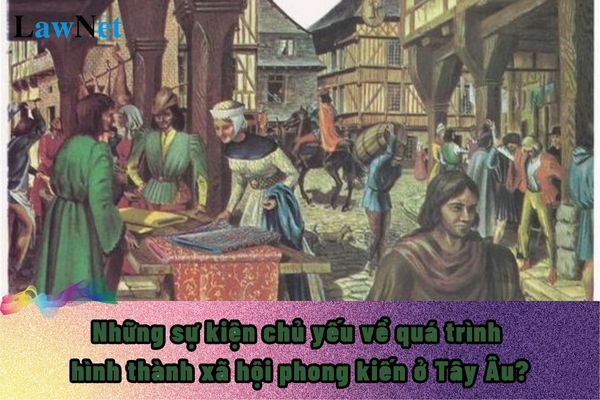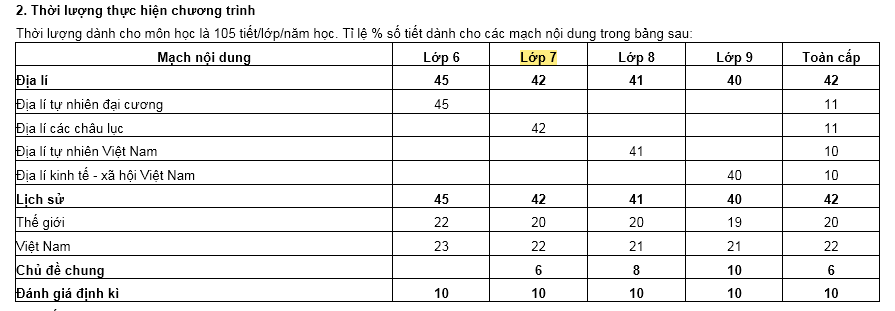Vietnam: What are the key events during the formation of feudal society in Western Europe? How many lessons does the 7th-grade History and Geography curriculum have?
What are the key events during the formation of feudal society in Western Europe?
World history is one of the subjects that students will study in the current new education program for History and Geography.
Therefore, students can prepare lessons in advance and review the key events during the formation of feudal society in Western Europe as follows:
|
What are the key events during the formation of feudal society in Western Europe? The formation of feudal society in Western Europe was a long and complex historical process, closely linked to the decline of the Roman Empire and invasions by the Germanic tribes. Below are the main events: |
*Note: The information about the key events during the formation of feudal society in Western Europe is for reference only./.

What are the key events during the formation of feudal society in Western Europe? How many lessons does the 7th-grade History and Geography curriculum in Vietnam have? (Image from Internet)
Are key events during the formation of the feudal society in Western Europe included in the History Curriculum at the lower secondary level in Vietnam?
Under Section 5 of the General Education Program for History and Geography (Lower Secondary Level) issued along with Circular 32/2018/TT-BGDDT regarding the 7th-grade History and Geography Curriculum:
WESTERN EUROPE FROM THE 5TH CENTURY TO THE FIRST HALF OF THE 16TH CENTURY
- Formation and development of feudalism in Western Europe
- Geographical explorations
- Renaissance culture
- Religious reform
- Formation of capitalist production relations in medieval Western Europe
To be specific:
- Narrating the main events in the formation of feudal society in Western Europe.
- Presenting the characteristics of feudal estates and the social relations of Western European feudalism.
- Analyzing the role of medieval towns.
- Briefly describing the emergence of Christianity.
- Using maps or diagrams to introduce the main routes of major geographical explorations worldwide.
- Stating the outcomes of geographical explorations.
- Introducing significant economic and social transformations in Western Europe from the 13th to the 16th centuries.
- Presenting notable achievements of the Renaissance cultural movement.
- Recognizing the significance and impact of the Renaissance cultural movement on Western European society.
- Stating and explaining the causes of the religious reform movement.
- Describing the basic contents of the religious reform movements.
- Stating the impact of religious reforms on Western European society.
- Identifying major societal changes and the emergence of the capitalist production method in Western Europe.
Thus, key events during the formation of the feudal society in Western Europe are included in the History Curriculum at the lower secondary level in Vietnam (Grade 7).
Download the General Education Program for History and Geography (Lower Secondary Level).
How many lessons does the 7th-grade History and Geography curriculum in Vietnam have?
Under Section 8 of the General Education Program for History and Geography (Lower Secondary Level) issued along with Circular 32/2018/TT-BGDDT regarding the 7th-grade History and Geography curriculum:
EXPLANATION AND IMPLEMENTATION GUIDE FOR THE PROGRAM
- Program Duration
The time allocated for the subject is 105 lessons/grade/school year. The percentage of lessons dedicated to each content strand is as follows:

Thus, the duration of the 7th-grade History and Geography curriculum in Vietnam is divided into 42% for the world history section 20%, 22% for the Vietnamese history section, 6% for the common topics section, and 10% for periodic assessment.

